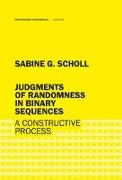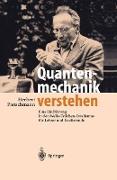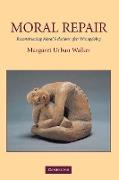Judgments of randomness in binary sequences
BücherAngebote / Angebote:
Individuals encounter many probabilistic events that they perceive as binary sequences of outcomes occurring over time. Examples for such binary sequences are heads and tails on coin tosses, black and red outcomes on roulette wheels, or ups and downs in the stock market. The perception of such sequences of outcomes as either lawful and patterned or random has consequences for cognitions and behaviors. Understanding how individuals form randomness judgments, namely the factors determining randomness judgments in binary sequences and the cognitive processes underlying them, is therefore important. The present research proposes that judgments of randomness are the result of a constructive process. Objectively identical binary sequences are hypothesized to result in diverging randomness judgments due to the relative weight of intuitive-automatic and deliberative-controlled cognitive processes operating on the input from environ ment and memory. In this context the focus is on associative and constructive intuition. A set of five experiments is presented which addressed the hypothesized constructive process. First, the unique and joint effects of various characteristics of sequences representing the input from the environment were identified (alternation rate, maximum run length, position of the longest run within the sequence, and in which symbol type this run occurred). Afterwards, the operation of cognitive processes on the input from environment and memory (implicit versus explicit knowledge about randomness, random devices and outcome sequences) mediating randomness judgments was demonstrated. Randomness judgments differed depending on the relative weight of intuitive-automatic and deliberative-controlled cognitive processes. This result is produced by differential reliance on characteristics of sequences and on implicit versus explicit knowledge. Identifying the unique and joint effects of various characteristics of sequences and outlining the importance of implicit versus explicit knowledge and the operation of cognitive processes on the input provides a critical piece of evidence towards a better understanding of how judgments of randomness in binary sequences are formed.
Lieferzeit unbestimmt. Kontaktieren Sie uns für genauere Infos


